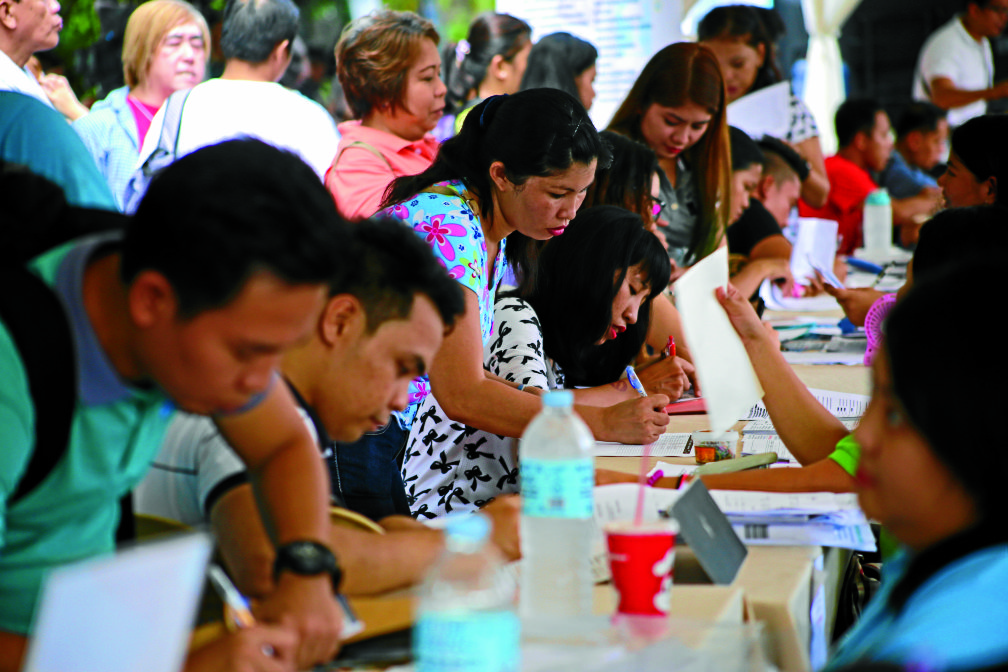Neda: Only India has higher jobless rate than PH in emerging Asia

Jobseekers flock the annual Job fair at the Luneta Park as part of the 118th Independence Day activities on sunday.INQUIRER/ MARIANNE BERMUDEZ
MANILA, Philippines—To bring down the Philippines’ unemployment rate, which remained one of the highest in emerging Asia, the state planning agency National Economic and Development Authority (Neda) wants to fully reopen the economy, including resuming face-to-face classes.
In a report on Wednesday (July 13), Neda noted that only India had a higher jobless rate than the Philippines among major Asian economies.
India’s unemployment rate was 7.8 percent last June, above the Philippines’ jobless rate of 6 percent in May. As available employment failed to keep up while more Filipinos looked for jobs with economic reopening in full swing, the unemployment rate inched up last May, equivalent to 2.93 million people without a job, from 5.7 percent in April.
All other latest jobless rates among emerging Asian countries were lower than those in India and the Philippines: 5.8 percent in Indonesia last February, 5.6 percent in China last March, 3.9 percent in Malaysia last April and 2.5 percent in Vietnam last June, data compiled by Neda showed.
For Neda, “the immediate challenge is to fully reopen the economy, and regain the growth momentum.”
Article continues after this advertisement“Over the medium term, the government will focus on creating more jobs, quality jobs, and green jobs,” Neda said.
Article continues after this advertisementTo further reopen more economic activities, Neda said the new Marcos administration “will reinstitute the vaccination drive and further encourage booster vaccination, particularly among youth.”
Besides ensuring that the health system was ready in case of any surge in COVID-19 infections, Neda also pushed to address scarring wrought by the prolonged COVID-19 pandemic in the education sector.
“The immediate and safe resumption of face-to-face classes will increase domestic activities and prevent future productivity losses,” Neda said.
“The resumption of face-to-face classes can maximize the gains from more relaxed alert level classifications as it can induce more economic activities, such as businesses around schools,” Neda added.
“A catch-up plan needs to be formulated to regain lost learning from the past two years,” according to Neda.
“This will help secure better opportunities for future generations and ensure that the country’s demographic dividend will not be wasted,” it said.
Socioeconomic Planning Secretary and Neda chief Arsenio Balisacan last week urged make-up classes for younger school children alongside training for college students so they can catch up for two years lost to the pandemic.
According to Neda, “increasing the employability of the current and future workforce can translate to job creation and better employment outcomes in the medium term.”
“This can be done through improved quality of education, provision of opportunities for life-long learning, in-demand skills development, options to obtain micro-credentials, enhanced job facilitation programs and strengthened linkages between industry, business, and training institutions for a more efficient labor market, among others,” according to Neda.